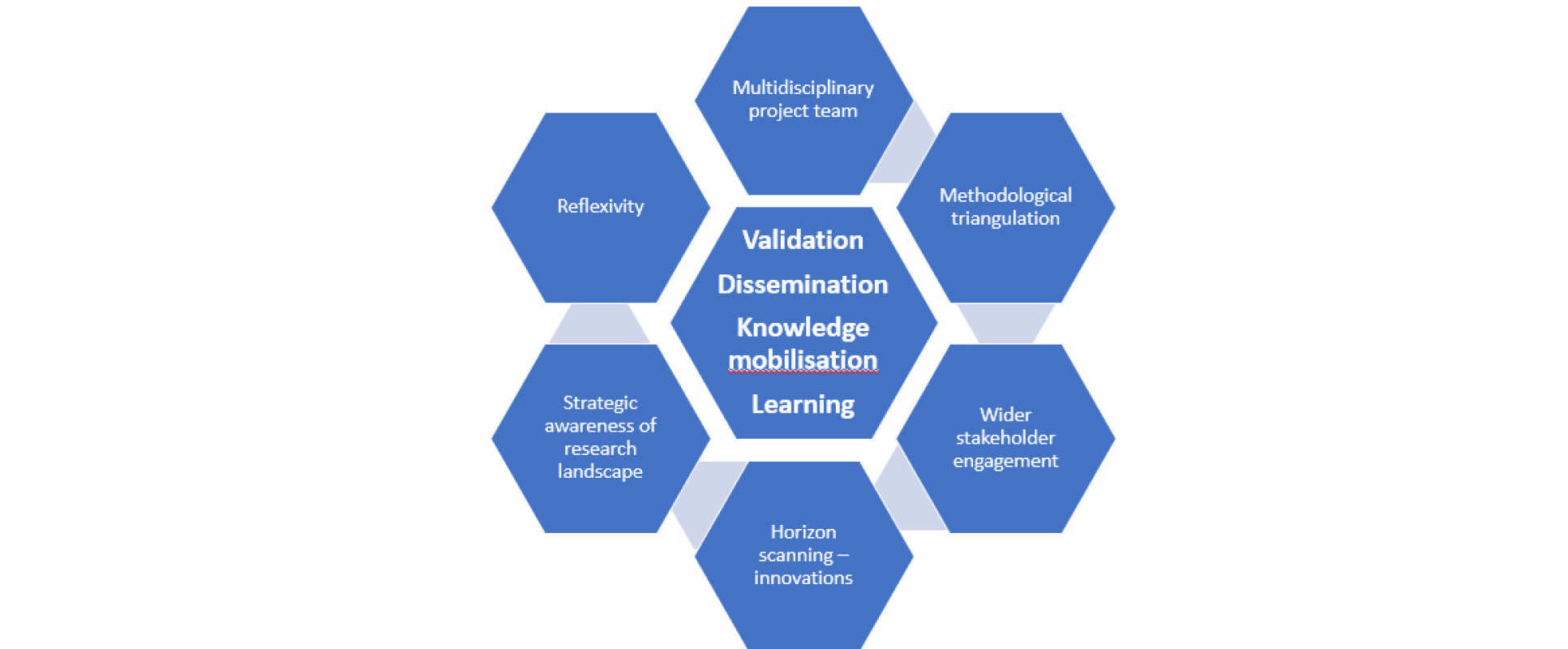
Overarching theoretical approaches
This project offers a comprehensive investigation of Antimicrobial Stewardship (AS) and Infection Control (IC) behaviours approached as a co-construction of individual, organisational and wider contextual factors. The project examines these factors at the micro-, meso- and macro-levels using theoretical approaches from the fields of strategic management, sociology, psychology, and anthropology. To evaluate how appropriate interventions may be successfully adopted and implemented within different contexts, an organising framework of implementation is employed.
A soft systems approach is used for the evaluation of different interventions and policies by mapping interactions and consequences using qualitative and quantitative data. To connect these multi-level and multidisciplinary approaches, the Consolidated Framework for Implementation Research (CFIR) is used as an overarching organising framework as it facilitates understanding of processes of introduction and management of change within a complex healthcare system or pathway and allows for examination of behaviours.
WP5: Validation of research, communication and translation of findings
Methods
Quarterly review of the methodological reliability and validity of the data and analysis across the WPs. For qualitative research, this includes considerations of individual and epistemological reflexivity. Quantitatively this includes a critique of generalisability of findings. The relevance of the work, alignment with the dynamic policy arena and horizon scanning for new interventions are also functions of this WP.
Realisation of pathways to impact for intended beneficiaries is also assessed. The International Advisory Board input is defined through this WP.
Expected impact
- To identify ways of reducing overuse, underuse and misuse of antibiotics, improving quality of care and reducing waste of healthcare resources;
- To promote the efficient design of services by finding solutions along the patient pathway for patients undergoing surgery;
- In the long-term, to contribute to a reduction in costs to patients and society;
- To build research capacity in low- and middle-income countries and the tools to design and evaluate solutions